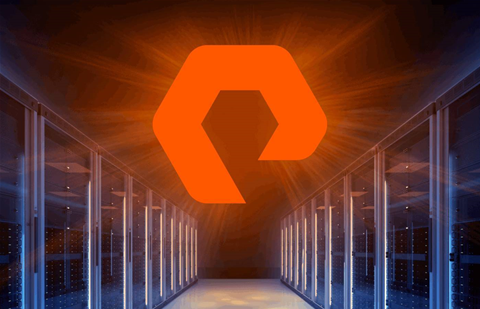Pure Storage has been seeing a lot of success since it first launched publicly in 2011, offering flash-only for data centres, and expanded into Australia in 2013.
In 2019, the Californian company launched into the storage-as-a-service (StaaS) market with Pure as-a-service and since has made changes to target organisations of all sizes.
At the company’s customer and partner event this week, updates to the partner program and portal will be announced, with increased rebates for ‘Elite’ level partners and the ability to manage subscriptions as well as the product added to the portal.
It will also outline how they are going to incorporate recently acquired PortWorx’s Kubernetes Data Services Platform tech into its offering and take it fully channel.
CRN sat down with APJ partners area vice president Andrew Fisher and ANZ channel sales director Adam Rosham to discuss Pure’s place in the channel and what it has to offer for partners.
“Pure as-a-service is a true utility model, which I think is the material differentiator for us and our customers, and our partners are certainly taking advantage of that,” Fisher said.
“It is a solution that is consumptive, that is a hosted private solution for their client, or provided through an MSP, or connected to one of the hyperscale cloud providers. It has all of the effective reporting, and billing models and our partners really enjoy those.”
A ‘true utility’ model, Rosham elaborated, is one in which ownership of the equipment remains fully with the vendor.
CRN readers will note that the utility model Pure introduced is almost identical to those offered by Dell, HPE and NetApp.
“There's no transfer of title to customer, partner or anybody, which means there are no balance sheet issues. Many other vendors have finance underneath the covers or hire purchase or operating lease, we don't have any of that.”
Simplicity, Rosham and Fisher stated, is a big part of what Pure offers to its partners.
Selling 100 percent through the channel has long been a major component of Pure’s strategy and its success, with subscription services growing 32 percent over the last year alone, has allowed it to be choosy about which resellers and service providers it partners with.
“Pure is famous for its customer experience and I love that, and I think that's what our partners look for in any vendor experience,” said Fisher.
“How much is this going to cost me emotionally? Financially? Is my client going to be happy? Because with our systems integration partners and our global systems partners, we're only one part of a larger offering that they're putting forward and we just want to be the least problem for them.”
Rosham added, “You see quite a difference between consultants that are working on cloud solutions and system integrators who are working on infrastructure solutions, and I think that helping our partners bridge that gap and create that kind of capability is important. And our products do that.”
Fisher said that Pure’s flexibility for commercial models also helps streamline partners’ pitches for their clients.
“All too often we'll see partners present a capital purchase model then, halfway through, it'll turn into outcome-based as-a-service managed, that may get costed out of the equation and it goes back to capital and then goes to a hybrid model – I love Pure because we can go with our partners on that journey. You can get halfway through a negotiation process, flip it to an asset on a balance sheet or CapEx for the same offering, it's not a lease, off you go.”
Rosham outlined other benefits that partners can pass on to clients like reduced carbon footprint and energy consumption, its evergreen subscription model that ensures the tech is kept up to date, and the knowledge that out of date products are being put back into the ecosystem via recycling programs.
While the company may be picky, Pure’s channel leaders explained that they are still bringing on new partners, as long as they are willing to be more than box-droppers but an extension of Pure’s sales team.
“The ones we want to work with are the ones who understand our differentiators because we believe we're a very different company, a very different product to all the others,” Rosham said.
“We want to make sure that if we do decide to work with an organisation that they become capable and understand the differentiators. That's really important. For their success as well as ours.
“You've seen them across the Fast50 and in the lists of the fastest-growing companies, a lot of them were our early partners and a lot of them are our current partners. There is a distinct correlation between those two things – when you've got a wildly simpler and better new technology, if you can understand it and talk about it, you're going to be successful in selling it.”




.png&h=142&w=230&c=1&s=1)
_(27).jpg&h=142&w=230&c=1&s=1)


_(21).jpg&h=142&w=230&c=1&s=1)




.jpg&w=100&c=1&s=0)







_(1).jpg&q=95&h=298&w=480&c=1&s=1)



